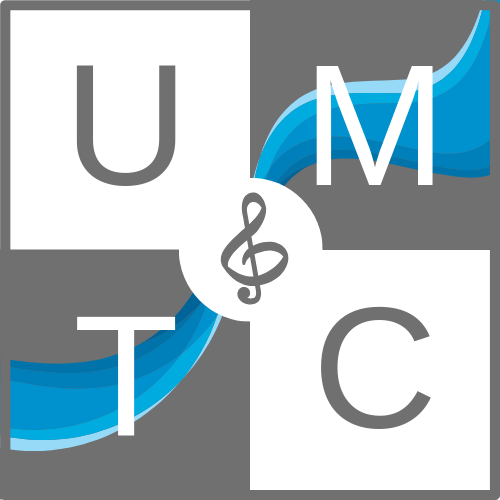Blog written by Katie Pistilli, MT-BC
Has your passion for music and desire to help others have you leaning toward wanting to pursue a career in Music Therapy?
Last month we released a blog called Should I Become a Music Therapist, where we talked about the different questions to asking yourself when deciding whether or not to become a music therapist.
Now, we’re taking the next step in helping you achieve that career. Here are 5 the steps you’ll need to take in order to become a Board Certified Music Therapist.
1) Find a School
Whether you are just finishing up high school or already a professional in another field looking to change career paths, the first step is finding an AMTA-approved university. AMTA stands for the American Music Therapy Association. They set the standards for education and determine if a program is teaching what a music therapist really needs to know. Programs at these schools vary. You might be looking for a bachelor’s program or master’s equivalency if you already have a bachelor’s degree.
AMTA outlines the different options for you. Find the path that best fits your life’s trajectory.
There are many colleges out there that claim to offer degrees or “concentrations” in music therapy. It is absolutely essential that you make sure these programs are AMTA-approved. If you do not complete your coursework at an accredited program, you will not qualify for necessary steps like internship or sitting for your board exam.
To ensure you are pursuing a qualified program, make sure it is on this list: AMTA Approved Schools.
2) Audition
As much as music therapy is an allied health profession, you are first and foremost a musician. During your time in college, you must cultivate your musical self as any music major would. An audition is part of the application process at any school. You will be asked to audition on your primary instrument or voice. Many instrumentalists choose the instrument they played in band or orchestra in high school. You can also audition on voice, classical guitar, or piano. If you are still in high school, ask your music teacher to help you with this process! Keep in mind, you will be working with your primary instrument for at least 4 years. Make sure playing it is something you like doing!
3) Complete Your Coursework
Once you audition and enter into a program, it will take 4 years to complete. If you are coming in with the pre-requisites or a music degree in a related field you may complete it in less time. During this time, you’ll learn a lot of information, from music history and theory to psychology, research methods, and music therapy approaches. It is all essential information that you will implement during internship.
You’ll get a small taste of internship during your school years in the practicum setting. Practicums are wonderful opportunities to get your feet wet, practice some interventions, and therapeutic skills before internship. During practicum, you will learn about the steps and procedures behind writing music therapy goals, creating a treatment plan, and much more. Be sure to soak up as much of this experience as you can!
4) Internship
Internship is the capstone event of a music therapist’s educational journey. An internship consists of 1,200 clinical hours completed under the supervision of a board-certified music therapist. During your internship, you will cultivate the skills and competencies you’ll need to be a competent and confident clinician. Similar to applying for schools, internships require an audition process. Unlike your college audition, the skills are more practical for the profession. You may be asked to lead a group in a musical activity, showcase your piano, voice, and guitar skills, or answer situational questions applicable to the population you’ll be serving.
You must seriously consider pursuing an internship with the population you see yourself working with. For example, if you want to work with children, consider a school-based internship setting. You can also find internships based in hospitals, schools, private practices, hospice and palliative care.
There are two kinds of internships: National Roster and Affiliate. Affiliate internships are those only available to students of a particular academic program. National roster internships are available to anyone. Use this resource to find an AMTA approved internship site.
5) Become Board-Certified
Did you know that a music therapist has credentials after their name? They are MT-BC and stand for Music-Therapist, Board Certified. Once you complete your internship clinical hours you are eligible to sit for the board-certification exam. All practicing music therapists must be board-certified. After all of your education and training, you will be more than prepared! This exam is taken entirely on a computer at a testing location.
Music therapy is a rewarding career like no other. It is full of experiences spanning numerous professions, from medical care, education, mental health, and across the spectrum of ages. The possibilities are endless. We hope that your journey is as rewarding as ours at UMTC has been!
Becoming MT-BCs: Presented by Casey Kunzer, MT-BC
This blog was written by Casey Kunzer, MT-BC On March 1st myself and my colleague Lauren had the opportunity to attend and present at SUNY Fredonia’s Mini Music Therapy Conference. Our presentation, “Becoming MT-BCs,” aimed to educate and empower student music...
World Music Therapy Week 2024
This blog was written by Robin Neary and Amy Thomas. Happy World Music Therapy week! It brings us joy to know that all around the world music therapists are coming together to celebrate and educate our communities on our profession. This year, Upstate Music Therapy...
Current Events: Marcus Whitman Community Partnership Event
This blog post was written by Robin Neary, MT-BC This month, Upstate Music Therapy Center employees Robin Neary, MT-BC, Jamie Swieringa, MT-BC, and Casey Kunzer, MT had the pleasure of attending Marcus Whitman School District’s Community Partnership Event. Families,...




